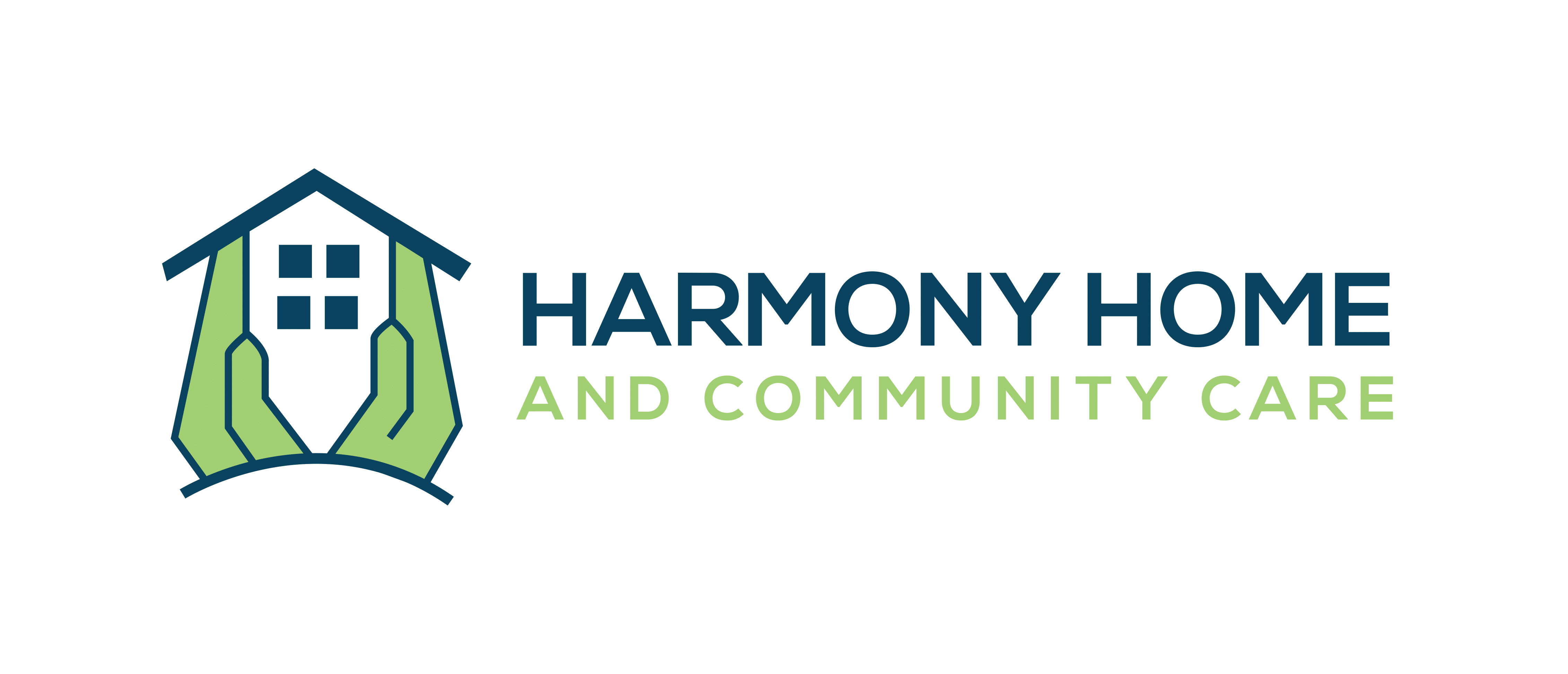Harmony Homes
June 30, 2024
The Advantages and disadvantages of NDIS Self-Management

The Advantages and disadvantages of NDIS Self-Management
The Advantages and disadvantages of NDIS
The National Disability Insurance Scheme (NDIS) in Australia provides support and services to individuals with disabilities to help them achieve their goals and improve their overall quality of life. One key feature of the NDIS is self-management, which gives participants greater control over how their funding is spent and which services they choose to access. In this article, we will explore the advantages of NDIS self-management and how it can empower individuals with disabilities to make choices that best suit their needs.
· Empowerment and Independence
Self-management under the NDIS empowers individuals with disabilities to take control of their own care and support. It allows them to make decisions about the services they receive, the providers they work with, and how they utilize their funding. This autonomy fosters a sense of independence and self-determination, enabling participants to tailor their support to align with their preferences and unique circumstances. By being actively involved in the management of their NDIS plan, individuals can exercise choice and control over their lives, leading to increased self-esteem and confidence.
· Flexible Service Provision
One of the key advantages of NDIS self-management is the flexibility it offers in terms of service provision. Participants have the freedom to choose their service providers based on factors such as compatibility, quality, cost, and location. This flexibility allows individuals to select services that best meet their specific needs and preferences, ensuring a more personalized and tailored approach to their support.
Moreover, self-management enables participants to negotiate individualized service agreements with providers, allowing for greater customization of services to address their unique goals and aspirations. This flexibility and customization contribute to a more holistic and person-centered approach to disability support, promoting greater satisfaction and outcomes for individuals with disabilities.

Recent Posts
Categories
· Financial Control
Self-management provides participants with greater control and visibility over their funding, allowing them to decide how their NDIS budget is allocated across different support categories. This financial autonomy enables individuals to prioritize their spending based on their needs and preferences, ensuring that resources are directed towards services that are most beneficial and relevant to them. By managing their funding independently, participants can make informed decisions about the most cost-effective and impactful ways to utilize their NDIS funds, maximizing the value of their support package.
Furthermore, self-management allows for greater transparency and accountability in the financial management of NDIS plans. Participants are responsible for keeping accurate records of their expenses and transactions, which fosters a sense of ownership and responsibility over their funding. This financial control not only enhances the efficiency and effectiveness of service delivery but also promotes better financial literacy and decision-making skills among participants.
· Enhanced Choice and Control
NDIS self-management provides participants with a wide range of choices and options when it comes to selecting services and providers. This increased choice empowers individuals to explore diverse support options and tailor their care to suit their individual preferences, values, and goals. By having the freedom to choose from a variety of service providers, participants can access high-quality and culturally sensitive services that align with their needs and aspirations.
Furthermore, self-management allows individuals to switch providers or modify their support arrangements if they are dissatisfied with the quality of service or if their needs change over time. This flexibility ensures that participants have the autonomy to make decisions that are in their best interests and adapt their support arrangements to reflect their evolving circumstances.
· Improved Service Coordination
Self-management promotes better coordination and collaboration among different service providers, as participants have the opportunity to work with a
diverse range of professionals and organizations to meet their support needs. By engaging directly with service providers and coordinating their care independently, participants can foster stronger relationships and communication channels with their support network, leading to more integrated and cohesive service delivery.
Additionally, self-management encourages participants to take a proactive role in managing their care and support, which can help prevent gaps in service provision and enhance the overall quality of care received. By acting as their own advocate and coordinator, individuals with disabilities can streamline the delivery of services, reduce duplication, and ensure that their support arrangements are cohesive and effective in meeting their goals.
· Enhancing Community Participation
Self-management enables individuals with disabilities to participate fully in their communities. Participants can use their NDIS funding to access services that promote social inclusion and community engagement. For example, individuals can use their funding to attend social events, participate in recreational activities, and access transport services to travel to and from community events. By promoting community engagement, self-management can improve the quality of life of individuals with disabilities, and increase their independence and sense of belonging.
Disadvantages of Self-Management in NDIS
While self-management under the National Disability Insurance Scheme (NDIS) offers significant advantages, it is important to acknowledge that there are also potential disadvantages and challenges associated with this approach.
· Administrative Burden and Complexity
One of the primary disadvantages of self-management in NDIS is the administrative burden and complexity it places on participants. Managing NDIS funding involves a range of administrative tasks, including budgeting, record-keeping, compliance with NDIS guidelines, negotiating service agreements, and handling financial transactions. For individuals with disabilities who may also be dealing with the day-to-day challenges of their condition, the added administrative responsibility can be overwhelming and time-consuming. This can lead to increased stress and a potential lack of capacity to effectively manage the administrative aspects of their NDIS plan.
· Financial Management and Decision-Making
Self-management requires participants to have a strong understanding of financial management and decision-making. The responsibility of effectively budgeting and allocating NDIS funds across various support categories can be challenging for some individuals, particularly those who may have limited
financial literacy or experience in managing funds. Furthermore, the pressure of making decisions about the most effective use of their funding without the support and guidance of experienced professionals can lead to anxiety and apprehension about making the wrong choices, potentially impacting the participant’s overall well-being.
· Coordination and Oversight of Services
Self-management also necessitates a high level of coordination and oversight of services. Participants are responsible for coordinating their care and ensuring that the services they receive are of high quality and meet their individual needs. This can present challenges in terms of knowing which services to access, which providers to engage with, and how to manage ongoing communication and administration with multiple service providers. Additionally, the absence of comprehensive oversight and coordination from a single case manager or service provider may lead to fragmented or disjointed support arrangements, potentially impacting the quality and consistency of services received.
· Risk of Financial Mismanagement and Exploitation
The transfer of financial responsibility to participants through self-management may increase the risk of financial mismanagement and potential exploitation. Participants managing their own funding are exposed to the risk of making errors in financial transactions, inaccurately recording expenses, or falling victim to fraudulent activities. Additionally, individuals with disabilities may be more vulnerable to exploitation or pressure from unscrupulous service providers or individuals seeking to take advantage of their financial resources. The absence of a formal system of checks and balances to oversee financial transactions and decision-making can exacerbate these risks.
· Capacity and Support Needs
Self-managing an NDIS plan requires a certain level of capacity, confidence, and knowledge in managing one’s own support and care. Individuals with complex or high-support needs may face additional challenges in navigating the intricacies of self-management, particularly if they require ongoing assistance and support in their daily lives. This highlights the importance of identifying and addressing the specific support needs of participants, as well as the provision of adequate resources and support structures to empower individuals with disabilities to effectively self-manage their NDIS plans.
· Social Isolation and Stigma
The additional responsibilities and challenges associated with self-management may lead to social isolation and a sense of stigma among individuals with disabilities. The pressure of managing their own NDIS plan may limit their ability to participate in social activities, pursue personal interests, or engage in community events, potentially leading to feelings of isolation and disconnection. Moreover, there may be a stigma associated with the need to self-manage an NDIS plan, with individuals feeling a sense of inadequacy or judgment due to their perceived inability to fulfill these responsibilities independently


